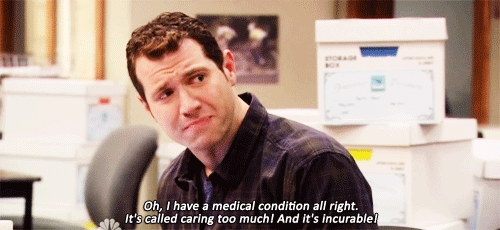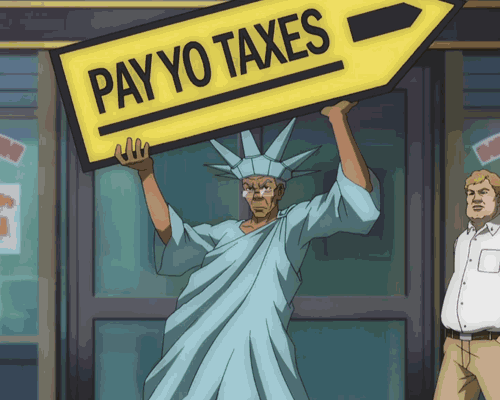
Hate your boss and dream of ditching your corporate job to freelance, consult or start your own business? You’re not alone. One in five millennials plans to quit their day job and take the plunge, according to a survey of Gen Yers. But it’s not as glamorous it sounds. If you think you’ll be spending your days drinking lattes in coffee bars hanging out with the cool freelance crowd, you might be in for a shock. Tossing aside the financial safety net of Corporate America can be truly rewarding, but it can also be seriously scary, like a first time aerialist perched on a pedestal hoping to catch the fly bar.
In your next act, you need to be prepared to deal with an unsteady paycheck even though you have mammoth monthly student loans to cover and ever-rising rent. Oh, and you will be losing tech support and use of the company’s color printer so you may have to spend some big bucks getting set up. More and more of us are becoming professional stuntmen, however, and surviving the high wire act of earning a solo income you can actually survive on in the circus that is Brooklyn can be done if you organize your finances so you don’t get hurt. Here are 5 things you need to know before you quit your 9-5.
1. Say Bye Bye to Benefits

Preparing yourself for life without benefits is the first step. Gone is the company-sponsored health insurance plan. Don’t panic! You’ve got options.
The most expensive one is COBRA — a jargony term for the continuation of your employer’s plan. That might seem comforting but you’ll be on the hook for shelling out more than the full amount (your employer’s part, your share plus 2% admin fees). Don’t be surprised if it costs you north of $400 a month.
You can also check out Freelancers Union which offers plans that start at $197 for the under 30 crowd, covering catastrophic and some primary care visits and Obamacare that offers some rock bottom no frills plans that cost around $150 (you may qualify for a subsidy).
You’ll also need a vehicle to replace your company’s retirement plan — yes, even if you are in your 20s you need to be saving something for that seemingly mythical day far off in the future. You can do this with a nifty little tax-advantaged thing called an Individual Retirement Account. This year you can put up to $5,500 in it.
If you choose a traditional IRA, you can write off the contribution from your taxes — even if you don’t itemize, giving you an upfront tax savings like your old 401k. Saving on taxes is awesome. Or you can opt for another version called the Roth IRA, in which you make after tax contribution but can take it out after age 59 1/2 without paying any taxes on the growth. Bonus!
2. Beware: The Tax Man Cometh

Your employer withholds federal, state and local income taxes from every paycheck you earn and when you file your annual tax return you either get a refund for paying too much or you owe the IRS money. Moving to self-employment is a whole different beast. Our tax system is “pay as you earn” even if you work for yourself so you’ll be joining the ranks of those who pay estimated quarterly taxes. If you don’t, you’ll be slapped with penalties and interest on the amount you should have paid.
Keep track of what you earn every month and by April 15, June 15th, Sept. 15th and Jan 15th you will need to make an involuntary donation to the IRS to cover your federal and state/city/local income taxes for that period. I’m not going to lie to you — it’s painful but if you don’t you’ll just wind up paying so much more. Ouch! Pour yourself a glass of wine and deal with it.
I can’t stress enough how important it is that you aside enough money to pay your taxes every quarter. I’ve worked with a couple of successful consultants who pretty much spent everything they earned every month. When I told them they needed to start saving a lot of money pronto to pay their taxes and I estimated the amount each of them owed they had a meltdown. One never contacted me again.
3. Prepare for Uneven Income

Ideally, you want to have a cash cushion of 6-12 months of necessary living expenses like rent, gas, electricity, cell phone, internet, groceries, health insurance and laundry. Yeah, but this is Brokelyn, after all, so that’s seriously not going to happen. Try to have at least two months of non-discretionary spending in an emergency account that you don’t dip into even when you are your friends are pushing you to chip in for a weekend rental on Fire Island. Head to Staten Island instead. The ferry is free.
This can be the trickiest part of transitioning from salaried to being paid per project, client or widget. Before you say au revoir to your corporate paymasters try to wipe out as much of your credit card debt as possible. It’s probably only going to get harder — not easier — to pay those bills on time and in full. Trimming your budget now and getting caught up on your accounts is good prep for the belt-tightening that will be necessary when you go out on your own anyway.
One way to save money is cut the cable cord and watch the next season of The Walking Dead or Game of Thrones at your neighborhood bar that’s showing it. Get yourself a Netflix or Hulu account if you must. Ditch the trainer at the gym and find a work out buddy who keeps you motivated and burning those abs and gluts. Cut coupons like your grandma and drink coffee, fresh juice and wine at home.
4. Sharing is Caring

Working on your own can be a drag sometimes. You might be tempted to join a co-working space like the ones on this list just to get out of solitary confinement a.k.a. the home office (and the mother of all tax deductions). But if you’re strapped for cash, check out the Brooklyn Public Library at Grand Army Plaza. There’s a free air-conditioned co-working space on the ground floor of the spanking new Information Commons, free internet and even a little coffee bar called Pie.
5. Make New Friends and Keep the Old

Seek out other solopreneurs. Self-employed comrades are good for advice, pick me ups and play dates that don’t break the bank. They can be a source of referrals and introduce you to networking groups where you’ll meet allies, mentors and others who can help lift your business.
Whether you are self-employed or still on the company payroll, join me and other entrepreneurs on June 23rd at Media Center for IFP, 30 John Street in Dumbo, for a class on managing your money, saving and paying down debt. Or check out my class July 11th at Brooklyn Brainery to learn how to deal with your debt.
Stephanie Genkin is a financial planner and television producer. She offers lively monthly classes and workshops on money topics at Brooklyn Brainery. Here is a partial listing of her past classes.
Leave a Reply



